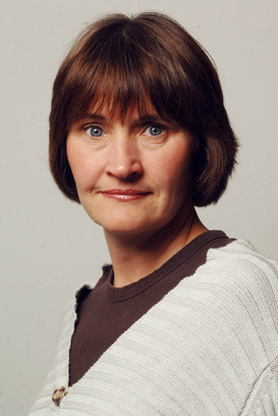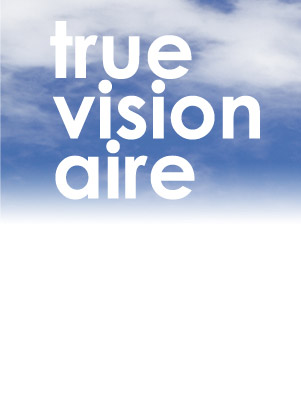Posted on April 9, 2018 by The Orwell Prize -

“The depth to which Wills has researched and animated the lives of Britain’s immigrant communities following the Second World War is astonishing, taking us far beyond the headlines and into the ports, dance-halls and workplaces through which they passed.” – Alex Clark
Clair Wills’ book brings to life the incredible diversity and strangeness of the migrant experience. She introduces us to lovers, scroungers, dancers, homeowners, teachers, drinkers, carers and many more to show the opportunities and excitement as much as the humiliation and poverty that could be part of the new arrivals’ experience.
Posted on April 9, 2018 by The Orwell Prize -

“Mark Mazower’s memoir of his father is filled with history’s great events: the massacre of Jews in Lithuania and the Siege of Stalingrad among them. But Mazower brings to life not only a son’s gradual piecing together of his family’s life, but also a deep and rewarding sense of their inner lives and thoughts.” – Alex Clark
In the centenary of the Russian Revolution, What You Did Not Tell recounts a brand of socialism erased from memory – humanistic, impassioned, and broad-ranging in its sympathies. But it also explores the unexpected happiness that may await history’s losers, the power of friendship, and the love of place.
Posted on April 9, 2018 by The Orwell Prize -

“Testosterone Rex is one of those rare books that manages to effortlessly mix science, social commentary and a call to arms. It is witty, robust and angry but provides a new take – and new evidence – that helps us answer the age old question of where women stand in the world.” – Kit de Waal
A book explaining why past and present sex roles are only serving suggestions for the future. It reveals a much more dynamic situation through an entertaining and well-documented exploration of the latest research that draws on evolutionary science, psychology, neuroscience, endocrinology, and philosophy.
Posted on April 9, 2018 by The Orwell Prize -

‘The nature and future of Islam is one of the biggest questions of our age. There are many who doubt whether the words ‘Islam’ and ‘Enlightenment’ should even be in the same sentence, let alone next to each other. Christopher de Ballaigue demonstrates a solid enlightenment tradition which remains vibrant today, and his book is compelling and urgent.” – Andrew Adonis
An absorbing account of the political and social reformations that transformed the lands of Islam in the nineteenth and early twentieth centuries.
Posted on April 9, 2018 by The Orwell Prize -

“I’m absolutely delighted that Darren McGarvey’s book Poverty Safari has won the Orwell Prize. His unflinching account of his life and the effects of deprivation and poverty is self-aware, brutally honest and more urgent than ever. If Orwell were alive, this is the book he would choose.” – Kit de Waal
“George Orwell would have loved this book. It echoes Down and Out in London and Paris and The Road to Wigan Pier. It is heart-rending in its life story and its account of family breakdown and poverty. But by the end there is not a scintilla of self-pity and a huge amount of optimism. It made me see the country and its social condition in a new light.” – Andrew Adonis
“Can a leftwing structural critique be married to an ethics of personal responsibility? This is the big question at the heart of Darren McGarvey’s vivid, passionate and relentlessly self-questioning memoir, which all the judges agreed was a book for our times” – Lorien Kite
“What distinguishes Poverty Safari from a ‘straight’ description of a working-class life is his searing examination of the narratives that surround poverty – and the way in which no individual, least of all him, can neatly be fitted into them.” – Alex Clark
Posted on April 9, 2018 by The Orwell Prize -

“Witty, wise and constantly surprising, the second novel in Ali Smith’s seasonal state-of-the-nation quartet resists the temptations of agitprop and invective to paint a delicate, historically nuanced portrait of Britain in the age of Brexit. A much-needed reminder that resolution, in life as in art, can only really come when each side learns to see something of itself in the other.” – Lorien Kite
In the second novel in her Seasonal cycle, Smith’s shape-shifting quartet of novels casts a merry eye over a bleak post-truth era with a story rooted in history, memory and warmth, its taproot deep in the evergreens: art, love, laughter.
Posted on April 6, 2018 by The Orwell Prize -

The Macpherson report 19 years ago and its assessment of “institutional racism” within policing is regarded as a defining moment in British race relations. The consensus now is that things have much improved; that fatal violence towards the black community is a US not UK issue. Over the summer, a cluster of young black men died following police contact. The official accounts were vague, but oddly similar. By painstakingly tracking down witnesses – many of whom were not interviewed by the watchdog – these official versions were contradicted and exposed. Together, they suggested a cover up. Lawyers warned us not to run the findings or footage because they might prejudice official inquiries. They were ignored in the public interest. Days after publication the IPCC recommended suspending officers; one force internally admitted failings. A month later, as a direct result of the article, another five Met officers were placed under investigation. Within three months the IPCC was shut down.
Video content
The arrest and death of Rashan Charles
Posted on April 6, 2018 by The Orwell Prize -

I aimed to expose how dangerous and widespread Spice use had become in Manchester in order to jolt authorities into action. Its use among society’s most vulnerable and hidden people – care leavers, prisoners the homeless – meant public policy had been allowed to lag way behind, to catastrophic effect. Agencies were still not recording how many incidents featured Spice, despite it having long been documented – including by me, through FOI, in 2015. So I spent 6 months researching the Feb 2017 investigation. When use exploded onto the streets last Spring, reportage then seemed the most powerful response. It succeeded in its goal, to an extent. The public nationally now knows about this drug – and so do politicians, some of whom had apparently been oblivious. One survey placed Spice as the top priority among mayoral election voters in May.
Social media & audience response
Twitter
Posted on April 6, 2018 by The Orwell Prize -

Channel 4 News aimed to highlight the reality of rough sleeping, by telling the story of one person who died on the streets of the UK. Andy Davies and his producer and cameraman pieced together the story of Lindy Pring, after seeing a brief mention in a student online newspaper of a woman’s death in a park in Cardiff. They found out her name, tracked down her partner who was living in a tent with her, and eventually persuaded her sister to describe Lindy’s path to homelessness. Through Lindy’s story, the TV and online work both personalises rough sleeping and sheds a light on the reality of life – and death – on the streets of a British city.
Social media content
Posted on April 6, 2018 by The Orwell Prize -

“On the Edge was a piece of vivid, hard-hitting journalism, combining people’s experiences, data and analytic insight to show how so many people are being locked out and left behind by the way our economy works.” – Campbell Robb
“A brilliant combination of ice cold analysis, real human interest, great use and presentation of data and limpid writing – all of which takes the problems of one seaside town and sets them in a far wider context.” – Nick Timmins
Video content
Posted on April 6, 2018 by The Orwell Prize -

Producer Director Joe Plomin’s films reveal the mistreatment of the most vulnerable people in society. His careful use of secret filming repeatedly delivers indisputable evidence of real, current ‘evils’. Undercover: Britain’s Immigration Secrets exposed abuse and even assaults at Brook House Immigration Removal Centre, widespread self-harm and people detained for months or even years as they await deportation. One boy was forced to test a batch of drugs by his cell mate. Since broadcast select committee hearings have begun in Parliament, the Home Office is investigating the company running the centre and its director has resigned. A criminal investigation is under way. Behind Bars, Prison Undercover helped reveal the truth about the crisis in Britain’s prisons, which prompted the Government to invest more.
Online content
G4S: What I saw when I went undercover
Posted on April 6, 2018 by The Orwell Prize -

Since the EU referendum, a stream of news reports revealed a spike in hate crimes, but what they did not describe was the far-reaching effects on the individual, nor the response from agencies. What I did, therefore, was tell the inside story of a hate crime over six months: one gay man, one incident. By exploring with him the psychological, physical, legal and financial aftermath, I was able to convey the meaning of hate crimes and the inadequate provision for victims. Although in this instance one policy worked – a harsher sentence because it was a hate crime – by detailing how the victim’s life crumbled leaving him homeless and penniless, the complex picture of what is lacking in policies and provisions, came into view. Half a million people either read the piece or watched the video. Many emailed saying only now do they fully understood what a hate crime really is.
Posted on March 15, 2017 by The Orwell Prize -

The RBS Dash for Cash investigation exposed how Britain’s biggest taxpayer-owned bank deliberately killed or crippled thousands of businesses in a deliberate plan to add billions of pounds to its balance sheet in response to government pressure to cut lending and bolster profits. Based on an explosive cache of thousands of leaked documents and extensive interviews, the investigation shone a light on the hidden consequences of the public bailout for British businesses and the inherent conflicts in the regulation of government-owned banks. MPs called it “the biggest single scandal since the 2008 crisis” and referred the bank to the SFO. In the wake of the story, the city regulator found RBS guilty of systematic abuse of small firms and the bank announced a £400m compensation scheme.
Journalistic Writing and Video Content
Posted on March 15, 2017 by The Orwell Prize -

The result of the Brexit vote came as a shock to many commentators but perhaps not to those who had read Felicity Lawrence’s prescient long read on the world of migrant gangwork in Wisbech. Lawrence spent months getting beneath the clichés to unpick the reality of life in one of the country’s areas of highest migration, explaining why local residents had become so angry and alienated. Using the framework of one Latvian organised crime group, she painstakingly uncovered a parallel world in which illegality flourished. She described how a state in retreat had allowed foreign organized crime groups to thrive, brutally exploiting fellow migrants while leaving locals feeling abandoned by all except the far right.
Journalistic Writing and Audio Content
Posted on March 15, 2017 by The Orwell Prize -

The piece is an investigation into a group of friends from Brighton who join a jihadist group in Syria. It attempts to examine what motivates young Britons to fight in faraway conflicts, what we might learn from their experiences and scrutinises the role of the state and public policy in counter-radicalisation. Based on a massive cache of leaked confidential documents alongside interviews with friends and family, police and intelligence sources that took place over seven months, the article offers a uniquely forensic insight into the radicalisation process.
Journalistic Writing and Video Content
Posted on March 15, 2017 by The Orwell Prize -

Drug companies who preyed on the sick and vulnerable when they hiked prices for vital medicines by up to 12,500 per cent were exposed by a Times investigation whose impact will save the NHS hundreds of millions of pounds each year. Billy Kenbers campaigning articles – more than 20 over six months – triggered a change in the law, a regulatory inquiry expected to result in huge fines and the near-bankruptcy of a billion-dollar pharmaceutical firm. At a time when the NHS is under unprecedented financial strain, he revealed how a small group of profiteering companies had exploited a loophole in pricing rules to impose dramatic price increases costing taxpayers an extra £262 million a year. Urgent legislation tabled by the government in response will enable the NHS to impose new price limits.
Journalistic Writing and Social Media Content
Posted on March 15, 2017 by The Orwell Prize -

‘Behind Closed Doors’ was a one hour documentary broadcast in peak-time on BBC1 at 9pm on 14th March 2016. Three women waived their right to anonymity to allow their stories of domestic abuse to be captured over a year. Working with Thames Valley Police Domestic Abuse Units, the film explores not just physical violence but also shows the psychological, verbal and emotional control abusers have over their victims as the audience watches each victim trying to extract themselves from their perpetrators. The film also exposes the ordeals of going to court to seek justice – and the deep inadequacies in the criminal justice system as one abuser repeatedly walks free. The film was watched live by 3.1 million people and trended first on Twitter for over an hour on the evening of transmission.
Journalistic Writing, Video, Audio and Social Media Content
Posted on March 15, 2017 by The Orwell Prize -

Ros Wynne-Jones has been leading the Daily Mirror’s opposition to the Bedroom Tax since its inception in April 2013. Dozens of stories in her Real Britain column, throughout the paper and online have shown not only its cruelty towards individual families, but its incompetence as a policy that does nothing to improve the national housing crisis. In extraordinary year, she followed families all the way to the Supreme Court, where some defeated the Secretary of State, and testified to the UN on their behalf. The campaign has also been run through the Mirror’s Facebook page, on twitter and in Parliament, alongside trade unions, and in unique collaboration with grassroots activist groups. Its also has spearheaded opposition against other welfare cuts.
Journalistic Writing and Social Media Content

















